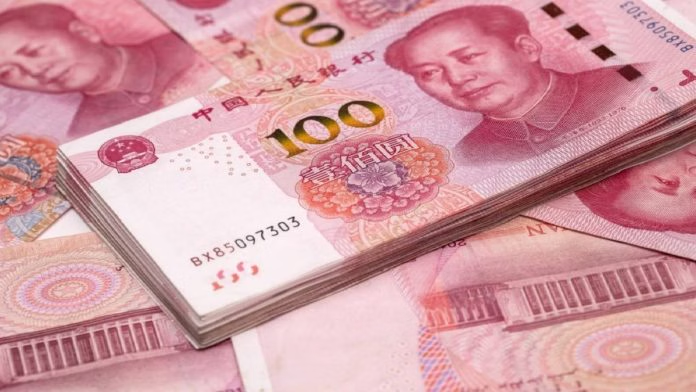Yuan Weakens Against Dollar, Sparks Global Economic Ripples

The Chinese yuan, also known as the renminbi, weakened by 72 pips to 7.1982 against the U.S. dollar on Wednesday, according to the China Foreign Exchange Trade System. The movement reflects fluctuations in global currency dynamics, impacting economies worldwide, including Africa and Nigeria.
In China, the central parity rate of the yuan against the dollar is determined daily based on a weighted average of prices offered by market makers before the interbank market opens. The currency is permitted to fluctuate by up to 2% from this rate during each trading session.

Global Economic Implications
The weakening of the yuan has significant implications for the global economy. A weaker yuan makes Chinese exports more competitive, which could bolster its trade surplus with key partners. However, it also raises concerns about potential currency devaluations in other emerging markets, particularly those heavily reliant on trade with China.
“China’s currency movements often set the tone for global trade. A weaker yuan could signal Beijing’s focus on export competitiveness amidst slowing domestic growth,” noted a currency analyst.
The shift also poses challenges for economies holding substantial yuan reserves, as the reduced value affects their foreign exchange holdings.
Impact on Africa and Nigeria
In Africa, where China is a major trading partner and investor, the depreciation of the yuan could influence trade balances. African nations exporting raw materials to China may see reduced revenue in local currencies, while those importing Chinese goods might benefit from lower costs.
Nigeria, in particular, could experience mixed effects. As a significant importer of Chinese machinery and manufactured goods, Nigerian businesses might benefit from cheaper imports, potentially easing inflationary pressures in some sectors. However, for exporters of crude oil and agricultural products to China, a weaker yuan translates to diminished returns in naira.
China’s Strategy and Market Dynamics
Analysts suggest that the depreciation reflects broader strategies by Beijing to navigate global economic challenges. By allowing the yuan to weaken, China could be aiming to stimulate exports and support its slowing economy, which faces pressures from weakened domestic demand and ongoing geopolitical tensions.
The yuan’s performance also interacts with U.S. dollar strength, influenced by Federal Reserve policies and investor sentiment. A stronger dollar typically puts pressure on emerging market currencies, including the yuan, driving global capital flows.
Looking Ahead
With the yuan’s daily fluctuations capped by a 2% margin from the central parity rate, traders will closely monitor developments in China’s monetary policy and economic indicators.
For African economies and Nigeria, maintaining diversified trade relationships and proactive currency management will be key to mitigating potential shocks from these shifts.
As China continues to play a pivotal role in global commerce, the yuan’s movements will remain a barometer of economic sentiment, influencing decisions far beyond its borders. Oil Prices Climb Amid US Stock Decline, OPEC+ in Focus




